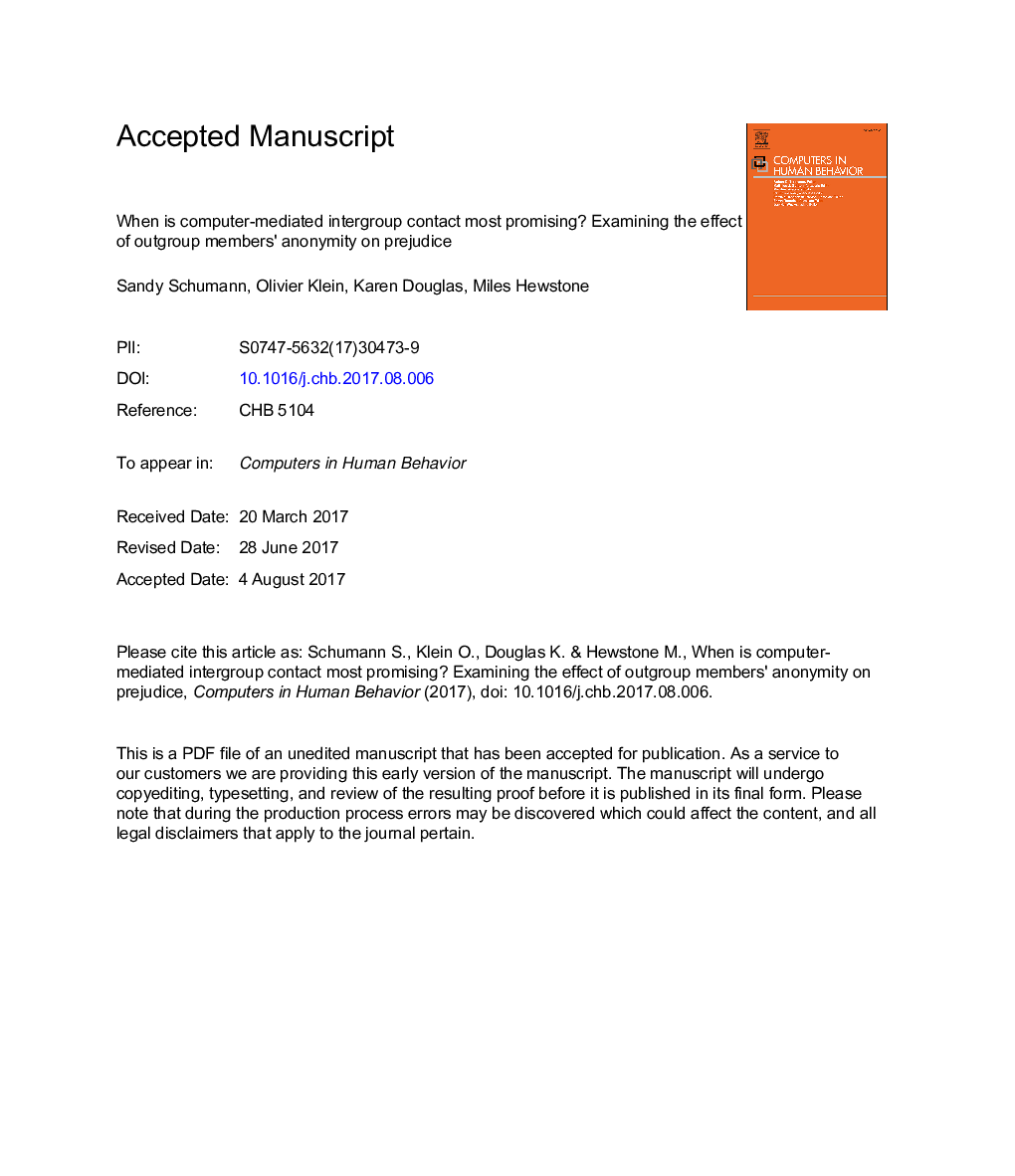| Article ID | Journal | Published Year | Pages | File Type |
|---|---|---|---|---|
| 4937039 | Computers in Human Behavior | 2017 | 58 Pages |
Abstract
Computer-mediated intergroup contact (CMIC) is a valuable strategy to reduce negative sentiments towards members of different social groups. We examined whether characteristics of communication media that facilitate intergroup encounters shape its effect on out-group attitudes. Specifically, we propose that concealing individuating cues about out-group members during CMIC increases prejudice, as interaction partners are perceived as less socially present. To assess these hypotheses, we conducted two mixed-factorial experiments. Participants engaged in synchronous text-chat with out-group members (Study 1) and a confederate (Study 2) who either shared or concealed their name and photo. Overall, CMIC reduced negative out-group sentiments. Study 2 showed, however, that out-group members' anonymity decreased perceived social presence, which was associated with less positive evaluations of the CMIC and higher prejudice. In conclusion, CMIC can contribute to conflict resolution interventions, preparing individuals for direct intergroup contact, if its affordances or conversation topics enhance interaction partners' social presence.
Related Topics
Physical Sciences and Engineering
Computer Science
Computer Science Applications
Authors
Sandy Schumann, Olivier Klein, Karen Douglas, Miles Hewstone,
